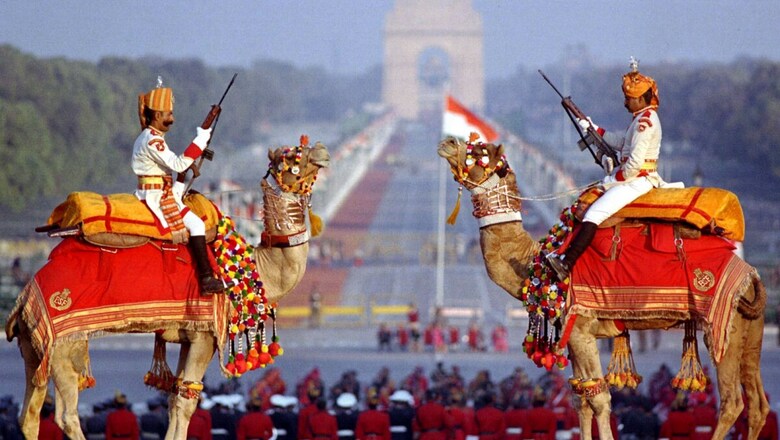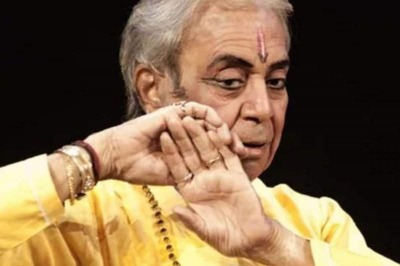
views
From Udhagamandalam to Vadodara, Bengaluru to Prayagraj, and now Bhagyanagar to Sambhajinagar, the trend of renaming cities, though not new, certainly has its own political and historical motive.
But does the renaming affect or rob the city of its socio-cultural identity? What benefit does one get by renaming a city, apart from political mileage? Reclaiming one’s history, some would say. A few others would say it also physically erases markers of the legacy left behind by the colonial rulers and invaders.
Just after India’s Independence, names of important areas in the national capital were changed. The path or road where the Republic Day parade is held was called Kingsway and was immediately renamed Rajpath, and the Queensway became Janpath.
Provinces like East Punjab were first renamed Punjab and trifurcated into modern-day Haryana, Himachal Pradesh, and Punjab in 1950. United Provinces was now called Uttar Pradesh and what was called Madras State under the British was renamed Tamil Nadu. Mysore State became Karnataka. Kerala was formed with the merging of Travancore and Cochin states.
The creation of states based on linguistics on the recommendation of the States Reorganisation Commission (1956) further led to changes in city names. By the late 1970s, the trend to rename cities to reclaim the local identity, language and tradition of the area gained momentum. Assam’s Gauhati became Guwahati, Bezawada was changed to Vijayawada, Laccadive, Minicoy, and Amindivi Islands became Lakshadweep, among others.
Even British spellings of cities were changed to make them more Indian. Waltair, which was the British colonial name of Visakhapatnam, was changed. Tuticorin became Thoothukudi, Cawnpore became Kanpur, Quilon became Kollam and Jubblepore became Jabalpur.
As time passed, governments in major states like Gujarat, Maharashtra, Tamil Nadu, West Bengal and Kerala decide to rename their capitals, giving them much-needed local identity and shedding the British blotch.
Renaming Allahabad to Prayagraj, Gurgaon to Gurugram also created quite the political flutter.
In Karnataka, under the Siddaramaiah-led Congress government, 12 cities saw their names being changed to give them the local flavour and identity. The capital Bengaluru got its new name based on the Western Ganga dynasty inscription found in Begur, which is called the city ‘Bengaval-uru’, or the ‘City of Guards’ in Old Kannada. Mangalore became Mangaluru after the deity Mangaldevi.
In Kerala too, Trivandrum was changed to its original name Thiruvananthapuram, meaning the city of Lord Anantha (Lord Vishnu). Another city in the coastal state, which was once called Cragnallore, was renamed Kodungallur, a name derived from the term ‘Kodi-linga-puram’, which means the “land of 10 million Shiva Lingas”.
But the process of changing city or state names is not easy. Renaming a city requires the clearance of the state cabinet. After having properly vetted the proposal and the need to change it, it is finally passed in the state legislature.
Of late, proposals to change names are loaded with political grandstanding.
Top on the list is Uddhav Thackeray’s last act as Maharashtra CM. The Facebook address that ended with his resignation, began with the announcement that Aurangabad is now Sambhajinagar and Osmanabad is Dharashiv.
It clearly was Thackeray’s last-ditch effort to burnish the Shiva Sena’s Hindutva credentials while giving the BJP a strong retort for needling him over not keeping the promise of renaming Aurangabad. The BJP had alleged that Sena’s hands were tied by NCP and Congress, its allies in the Maha Vikas Aghadi (MVA). Against this background, the Maharashtra Congress also began putting pressure to rename Pune city as Jijau Nagar after Chhatrapati Shivaji’s mother Jijabai.
Just days before Thackeray’s announcement, at the National Executive meeting of BJP in Hyderabad, senior party leader Ravi Shankar Prasad announced that PM Narendra Modi referred to Telangana’s capital as Bhagyanagar during his address to the party workers.
“PM Modi called Hyderabad Bhagyanagar which significant for all of us. Sardar Patel kept the foundation of a unified India and now it’s BJP’s responsibility to carry it further,” said Prasad.
While it is important to note that historians in Hyderabad do not share the same opinion when it comes to the origin of the name Bhagyanagar, it is certainly of interest. One of the most famous lores is that Hyderabad city was founded by Mohammed Quli Qutb Shah in 1591 and named after the dancer and singer called Bhagmati with whom he had fallen in love in his younger days. Some historians believe the king renamed the city after Bhagmati while others say the city was named Hyderabad after Bhagmati was converted to Islam.
However, certain old texts on Hyderabad mention the city’s name to be Baghnagar (city of gardens) as it was seen to be one filled with flower and fruit orchards. A senior historian once told me that the name Bhagyanagar (Bhagya meaning fortune) could also be apt as the city was wealthy with an enormous fortune in terms of trading of pearls, diamonds and precious stones.
The politics of changing the names of cities will continue as the agenda to reclaim one’s Indian-ness is set, but one can ask whether a rose by any other name would smell as sweet.
Read all the Latest News, Breaking News, watch Top Videos and Live TV here.




















Comments
0 comment